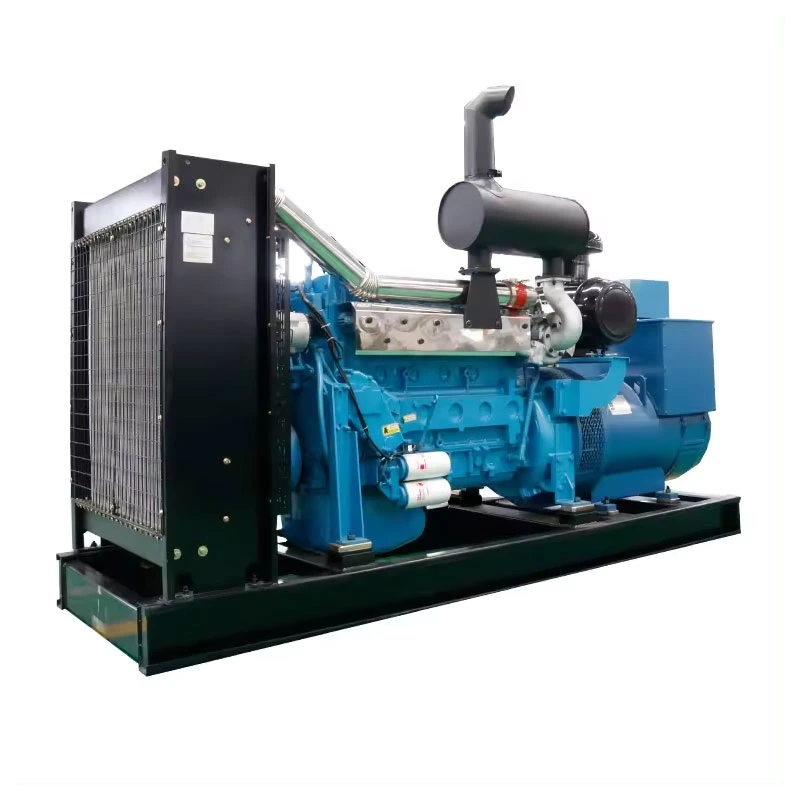Introduction
Diesel generators play a critical role in providing reliable power supply in various settings, including hot climates. As temperatures rise and demand for electricity increases, the need for robust and efficient power generation solutions becomes more pronounced. In this article, we will explore the unique challenges posed by hot climates and how diesel generators can effectively address these challenges to ensure uninterrupted power supply. We will delve into the key considerations for selecting and operating diesel generators in hot climates, as well as best practices for maintenance and optimization.
Understanding the Challenges of Hot Climates
Hot climates present a range of challenges for power generation equipment, including diesel generators. High temperatures can affect the performance and efficiency of diesel engines, leading to increased wear and tear, reduced fuel efficiency, and potential breakdowns. In addition, hot and dusty environments can cause overheating and clogging of air filters, compromising the engine's ability to function optimally.
One of the primary challenges of operating diesel generators in hot climates is managing heat dissipation. As ambient temperatures rise, the engine's cooling system must work harder to maintain optimal operating temperatures. Inadequate cooling can lead to overheating, which can cause engine damage and even complete failure if not addressed promptly.
Another challenge in hot climates is ensuring fuel quality and stability. Diesel fuel can degrade more quickly in high temperatures, leading to the formation of deposits and contaminants that can clog fuel filters and injectors. This can result in reduced engine performance and efficiency, as well as increased maintenance requirements.
Selecting the Right Diesel Generator for Hot Climates
When choosing a diesel generator for operation in hot climates, several key factors should be taken into consideration to ensure optimal performance and reliability.
1. Cooling System: One of the most critical components of a diesel generator operating in a hot climate is its cooling system. Look for made a post with robust cooling systems that can effectively dissipate heat even in high ambient temperatures. Air-cooled generators are suitable for smaller applications, while larger generators may require liquid cooling systems for more efficient heat dissipation.
2. Engine Design: The design of the diesel engine can also impact its performance in hot climates. Engines with advanced combustion technology and efficient cooling mechanisms are better equipped to handle the challenges posed by high temperatures. Look for engines with features such as turbocharging and intercooling to improve performance in hot conditions.
3. Fuel System: The fuel system of a diesel generator is another critical aspect to consider when operating in hot climates. Choose generators with advanced fuel filtration systems to ensure that the fuel remains clean and free of contaminants that can compromise engine performance. Additionally, consider using additives or stabilizers to improve fuel stability in high temperatures.
4. Enclosure Design: The enclosure of the diesel generator plays a crucial role in protecting the engine from the elements, including heat and dust. Opt for generators with weatherproof enclosures that provide adequate ventilation while keeping out dust and debris. Proper airflow is essential for effective cooling, especially in hot climates.
5. Remote Monitoring and Control: To ensure the reliable operation of a diesel generator in a hot climate, consider models that offer remote monitoring and control capabilities. This allows operators to monitor the generator's performance in real-time and address any issues promptly, even from a distance.
Best Practices for Operating Diesel Generators in Hot Climates
In addition to selecting the right diesel generator for hot climates, it is essential to follow best practices for operation, maintenance, and optimization to maximize performance and reliability. Here are some key best practices to consider:

1. Regular Maintenance: Regular maintenance is crucial for ensuring the optimal performance of a diesel generator in a hot climate. Schedule routine inspections, oil changes, filter replacements, and other maintenance tasks as recommended by the manufacturer. Pay special attention to the cooling system to prevent overheating.
2. Monitoring and Diagnostics: Implement a robust monitoring and diagnostics system to track the performance of the diesel generator and detect any issues early on. Monitor parameters such as oil pressure, coolant temperature, fuel levels, and exhaust emissions to identify potential problems before they escalate.
3. Fuel Management: Proper fuel management is essential for maintaining the efficiency and reliability of a diesel generator in hot climates. Ensure that the fuel is stored in a clean and secure environment, away from direct sunlight and contaminants. Monitor fuel levels regularly and replenish as needed to avoid running out during an emergency.
4. Ventilation and Airflow: Adequate ventilation is crucial for maintaining the proper operating temperature of a diesel generator in a hot climate. Ensure that the generator is installed in a well-ventilated area with sufficient airflow to prevent overheating. Regularly clean air filters and intake vents to prevent dust and debris buildup.
5. Load Management: Proper load management is essential for optimizing the performance and fuel efficiency of a diesel generator in a hot climate. Avoid overloading the generator beyond its rated capacity, as this can lead to increased heat generation and wear on the engine. Balance the load across multiple generators if needed to prevent strain on individual units.
Conclusion
Diesel generators are indispensable assets for ensuring reliable power supply in hot climates, where the demand for electricity is high, and the operating conditions are challenging. By selecting the right generator model, following best practices for operation and maintenance, and implementing effective monitoring and control systems, operators can maximize the performance and longevity of their diesel generators in hot climates. With proper care and attention to detail, diesel generators can continue to provide a dependable power source, even in the most demanding environments.
